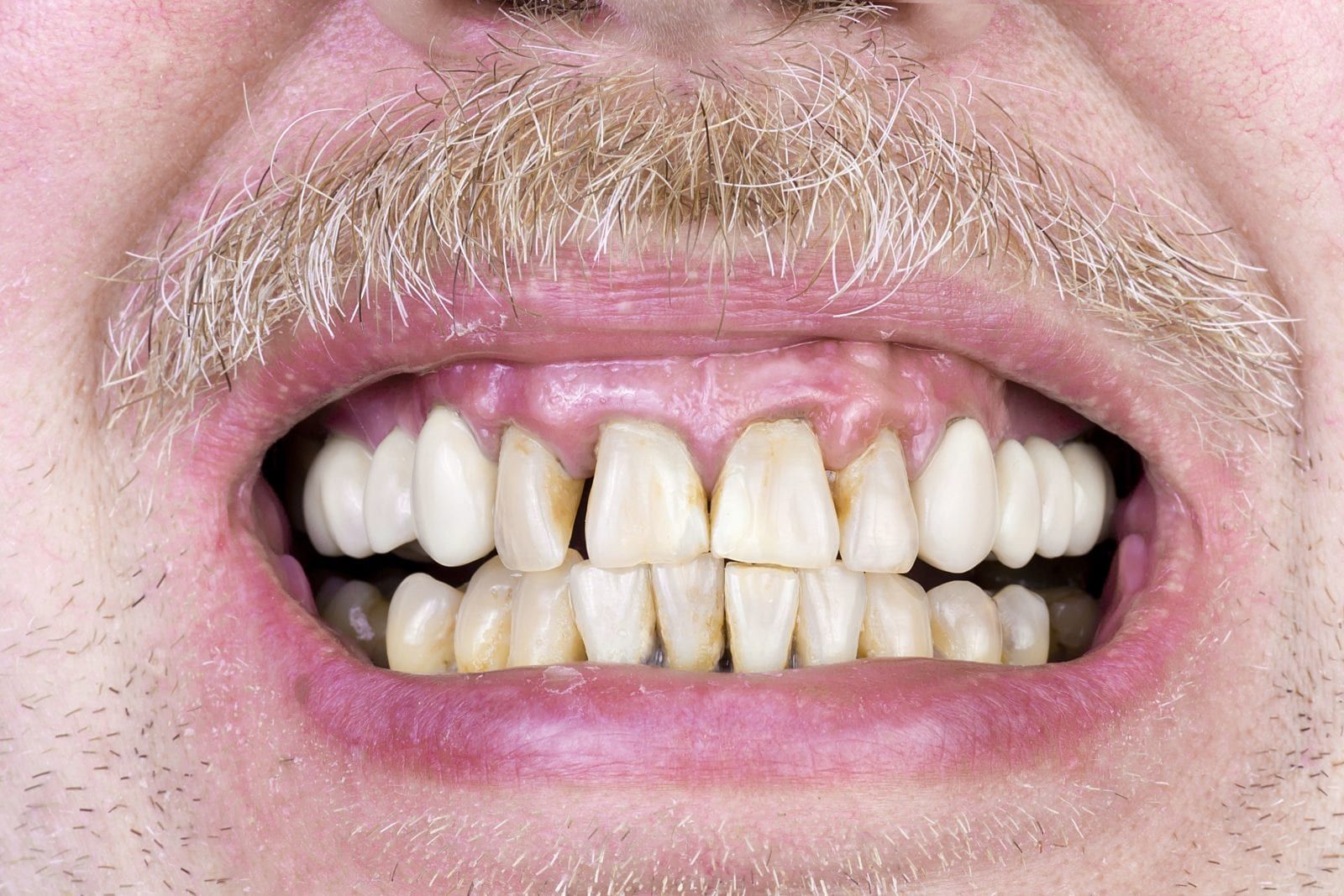Trying to have a conversation with someone who has bad breath can be quite unpleasant. Even if the conversation itself is stimulating and engaging, the foul odor emanating from the speaker’s mouth can make you feel that you need to end the conversation as soon as possible. In some cases, you may even be the person whose bad breath everyone tries to avoid. Luckily, bad breath is both common and treatable.
If you have bad breath, it is important to know that you are not alone. In fact, the American Dental Association states that around 50% of Americans have suffered from halitosis, or bad breath, at least once in their lifetime. Since bad breath is so prevalent, this also means that there are a variety of treatments available to alleviate bad breath. However, one key thing to realize is that before treating bad breath, you will need to know what the cause is. To help you determine what is causing your bad breath, here are some of the most common causes of bad breath:
Gum Disease

Gum disease, such as gingivitis and periodontitis, is characterized by the accumulation of plaque and bacteria along the gum line or between the teeth that causes inflammation of the gums. In some cases, plaque buildup can harden into tartar, which causes a pocket to form between the gums and the teeth. Unfortunately, these pockets often fill with more bacteria, which makes gum disease and bad breath worse. The more bacteria that collect in the mouth, the stronger the odor will become. Therefore, visiting your dentist for a periodontal cleaning to remove excess plaque and tartar is the best way to manage both gum disease and bad breath.
Poor Oral Hygiene
Even if excess plaque hasn’t caused gum disease, it can still contribute to bad breath. This is because plaque houses bacteria, which are responsible for the odor associated with bad breath. Proper twice daily brushings and daily flossing are important dental hygiene practices that remove excess plaque and keep your mouth clean. This also manages the bacteria populations, as well as the scent of your breath. Conversely, poor oral hygiene allows plaque and bacteria levels to rise, which contributes to bad breath. If you believe your bad breath may be the result of poor oral hygiene, speak with your dentist on how to improve your daily dental routine.
Diet
Everything we eat or drink passes through our mouth and therefore affects the scent of our breath. Certain foods and drinks have stronger scents than others, and these are usually the culprits of temporary bad breath. For example, onions and garlic contain an oil that when absorbed by the body, affects the scent of your breath for up to 72 hours after their consumption. Additionally, beverages with strong scents, such as coffee, can also produce an odor that lingers for some time after their consumption. Luckily, bad breath from diet is generally temporary and can be managed by rinsing, brushing, or chewing on mints after meals and drinks.
Smoking

Just like certain foods and beverages can have strong odors that linger on your breath, so can cigarette smoke. In fact, the smell of cigarettes lingers even after you are done smoking and can produce a foul odor. Not only that, but smoking contributes to dry mouth, which is another main factor included in bad breath. To alleviate your bad breath, it is recommended to stop smoking.
Dry Mouth
Dry mouth is a condition characterized by a decrease in saliva production. Unfortunately, since saliva is a key component in the mouth’s ability to clean itself, a lack of saliva production usually means that there are more bacteria, which contributes to bad breath. If you often feel parched, then you may have dry mouth. To manage bad breath associated with dry mouth, the best thing to do is keep your mouth as wet as possible by drinking water frequently, chewing gum, or sucking on sugarless candies.
Medical Conditions
Bad breath can even be caused by medical conditions that affect other areas of the body. For example, temporary bouts of bad breath can occur when the sinuses, nasal passages, tonsils, bronchial tubes, or upper/lower respiratory tract are infected. Chronic bad breath can also be the result of kidney disease, diabetes, or gastroesophagel reflux disorder (GERD).

Dr. Mark and Dr. Gina Covington are committed to providing their patients with the highest level of care. Both doctors are members of the Academy of General Dentistry as well as the American Dental Association. Locally, both belong to the Western Piedmont Dental society and the Foothills Dental Continuum. Because dentistry is a dynamic field, continued education is a paramount concern. Both Dr. Mark and Dr. Gina have completed several hundred hours of continued education to become proficient in the science and placement of dental implants. This course of study has allowed them to become Fellows of the International Congress of Oral Implantologists.


